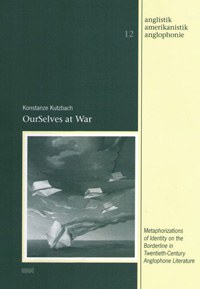Going Rogue with Baudrillard: A Radical Re-Assessment of War Literature
DOI:
https://doi.org/10.22029/ko.2010.570Abstract
Konstanze Kutzbach’s OurSelves at War takes up the task of formulating a post-critical theoretical framework for analysing the borderline negotiations of identity, and the gendered body in particular, in Anglophone war literature from 1898 to the end of the 20th century. Treating war as a “volatile and productive metaphorical site” (p. 3) rather than violent military confrontation in an empirical frame of reference, Kutzbach traces what she argues is a paradigm shift from a focus on representation in war literature, where war and the gendered body entail a more or less straightforward political and ideological metaphoricity (prior to the 1960s), to problematisations of “representability rather than representations of borderline experience of the subject imposed through war and death” (p. 151). Conversely, this paradigm shift overlaps with another one, from the juxtaposition of hero and enemy as subject and object/other, to an increased ambiguity between identity and alterity: “the development from literature whose protagonists tend to locate the perceived threat outside their own self to works which conceive of the source of this threat as originating in the self rather than an external force” (p. 7).

Downloads
Published
Issue
Section
License
All articles (not book covers) in KULT_online from issue 50 on are published under the license Creative Commons Attribution 4.0. All published articles may be reused under the conditions of the license, particularly for commercial purposes and through editing the article (Human-Readable Summary). All authors (have) permitted the publication under the above mentioned license. There is no copyright transfer towards KULT_online. For all book covers specific rights might be reserved, please contact the respective publisher for any lawful reuse. All contributions published in issue 1-49 of KULT_online are free available online and protected by the German Copyright Law.



